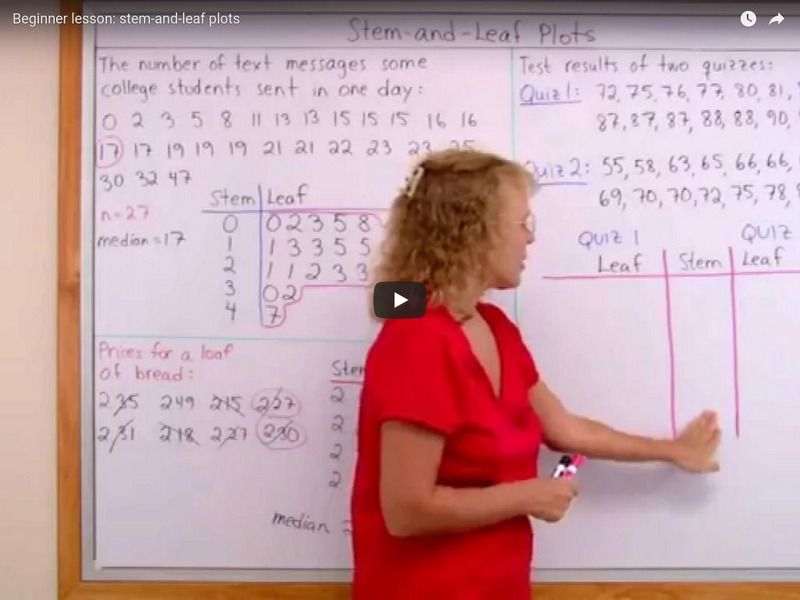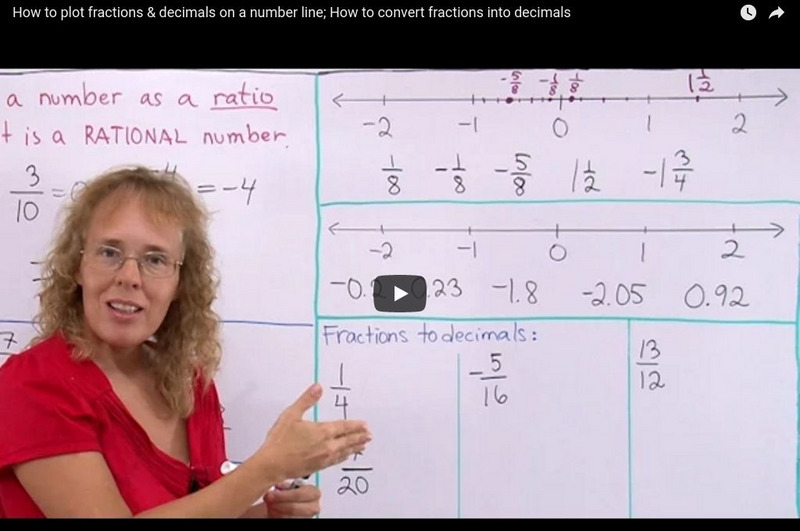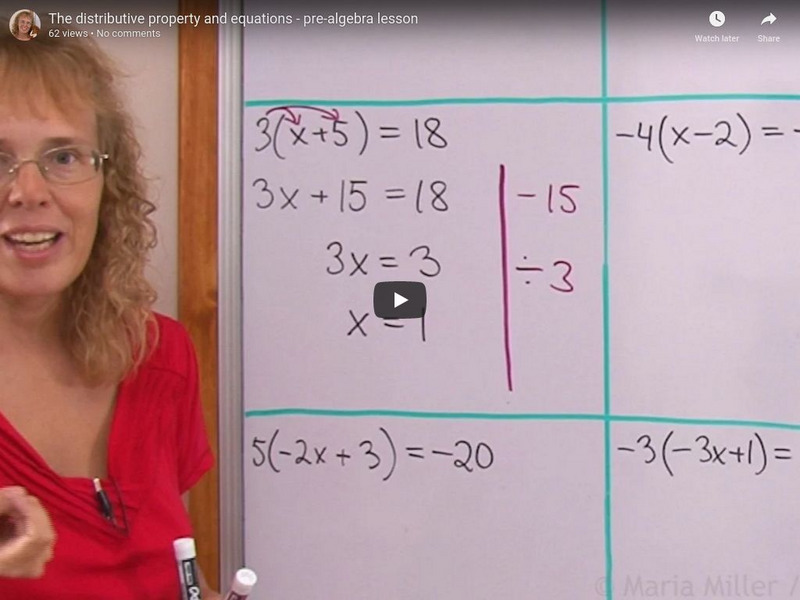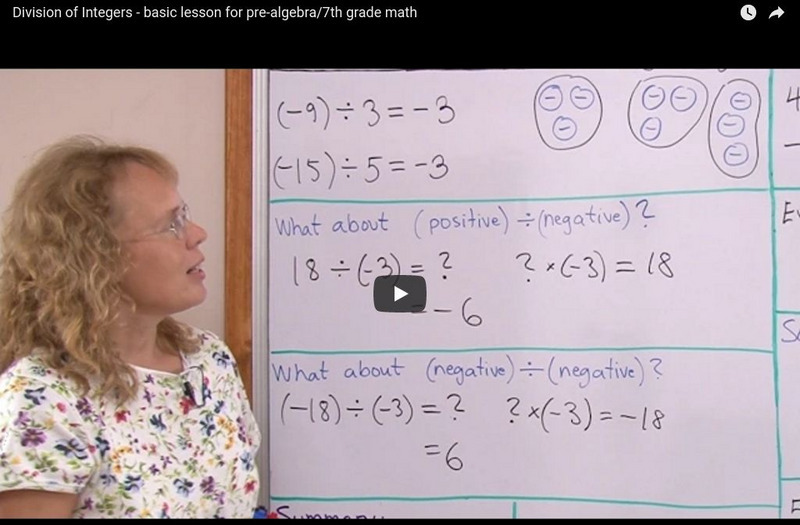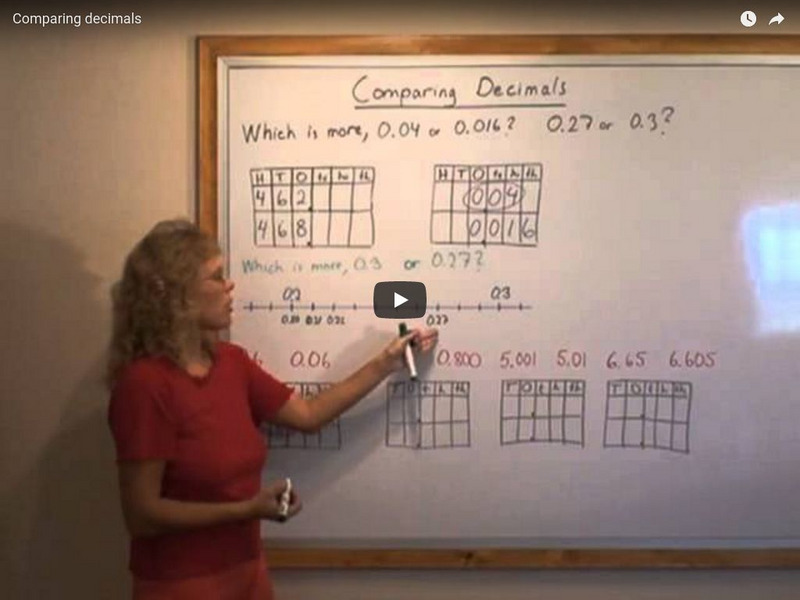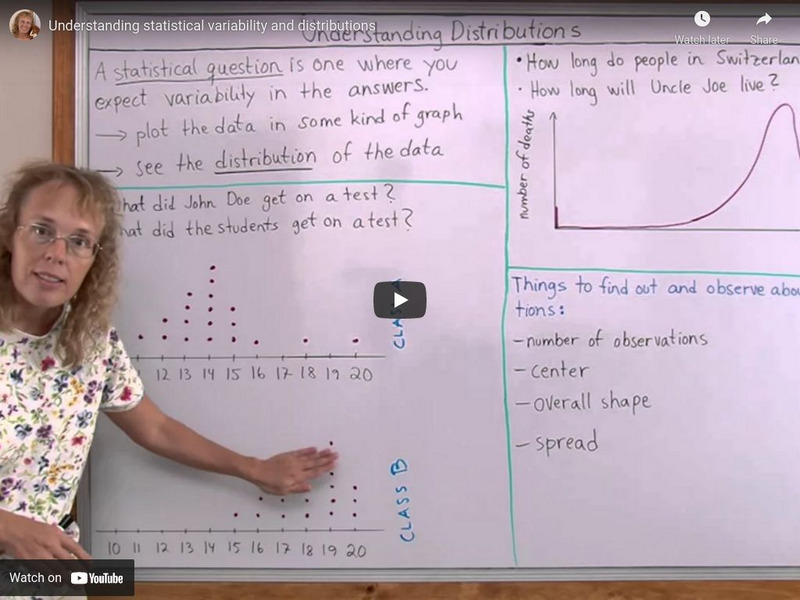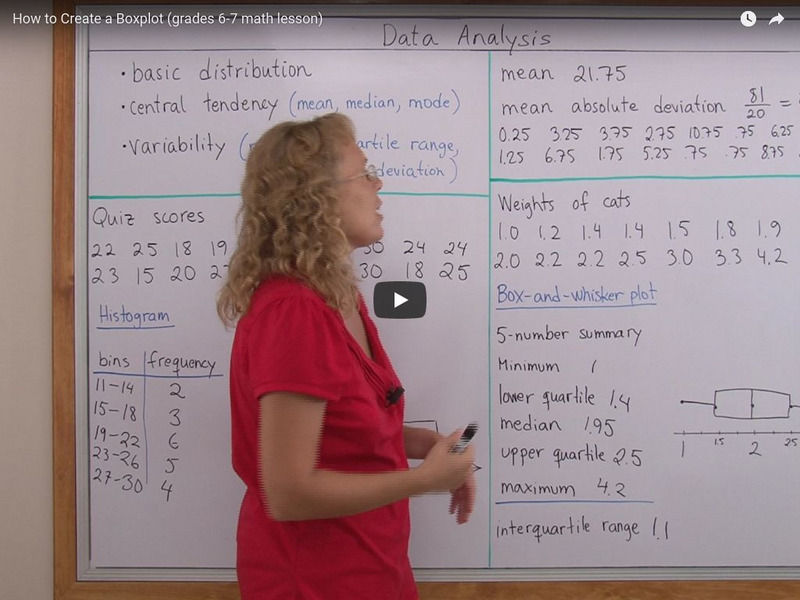Hi, what do you want to do?
Math Mammoth
Math Mammoth: Mental Addition of Two Digit Numbers
This video explains some strategies that are helpful for adding two-digit numbers in your head. [8:00]
Math Mammoth
Math Mammoth: Circles: Introduction
This video looks at the properties of circles and students are shown how to draw them using a compass, as well as how to draw one inside a square and how to copy a circle design. [9:23]
Math Mammoth
Math Mammoth: Beginner Lesson: Stem and Leaf Plots
Demonstrates how to make stem-and-leaf plots, what the median is, and how to observe the distribution of the data. [9:57]
Math Mammoth
Math Mammoth: Tell Time to Whole and Half Hours
Demonstrates how to tell time on an analog clock to the hour and the half-hour using just the hour hand. [5:23]
Math Mammoth
Math Mammoth: Features of Multiplication Table of 9, Plus Structured Drill
Teaches strategies for learning the multiplication table for 9. Students are then presented with a multiplication facts drill where they practice along to the video. [11:06]
Math Mammoth
Math Mammoth: Rational Numbers on Number Line and Convert Fractions to Decimals
This is the second video of a lesson on rational numbers. Students are shown how to plot positive and negative fractions and decimals on a number line, and how to use long division to convert fractions to decimals. [8:08]
Math Mammoth
Math Mammoth: Learn Square Roots: Beginner Lesson (Pre Algebra)
This video explains what square roots are and how to find them. [9:35]
Math Mammoth
Math Mammoth: Measures of Statistical Variation: A Beginner Lesson
A lesson in how to calculate measures of variation, including the range, the interquartile range, and the mean absolute deviation, and what each of these terms mean. [9:59]
Math Mammoth
Math Mammoth: Distributive Property and Equations Pre Algebra Lesson
Demonstrates how to use the distributive property to solve linear equations, and also how to solve them by dividing each side of the equation. [6:12]
Math Mammoth
Math Mammoth: Proportional Relationships / Direct Variation
This lesson explains several ways to determine if variables are in a proportional relationship. An example of a non-proportional relationship is given and inverse variation and direct variation are discussed. [11:55]
Math Mammoth
Math Mammoth: Adding Integers: Counters, Number Line, Different Signs, Rules
This lesson reviews how to add integers using counters and a number line, then models how to solve addition of several positive and/or negative numbers, and explains the rules to know for integer addition. [8:51]
Math Mammoth
Math Mammoth: Introduction to Inequalities Pre Algebra Lesson
This lesson explores the properties of inequalities and how to work with them and solve them. [7:28]
Math Mammoth
Math Mammoth: Subtracting a Negative Integer: Three Models to Justify the Rule
This lesson introduces the topic of subtracting negative integers. It explains how to think about it and some strategies to use when subtracting them. [10:38]
Math Mammoth
Math Mammoth: Division of Integers Basic Lesson for Pre Algebra
This lesson explains how to do integer division and what the rules are for the signs when working with positive and negative numbers. [9:17]
Math Mammoth
Math Mammoth: Comparing Decimals
This lesson demonstrates how to use a place value chart to compare decimal numbers. [5:49]
Math Mammoth
Math Mammoth: Equations With the Variable on Both Sides
This lesson demonstrates how to solve linear equations that have a variable on both sides. It goes over how to combine like terms and how to isolate the variable. [7:27]
Math Mammoth
Math Mammoth: "How Many More" Additions and the Idea of Difference
This lesson explores the concept of the difference between two quantities using a number line and addition. [6:56]
Math Mammoth
Math Mammoth: Fact Families: Addition and Subtraction
This lesson explains what fact families are and how to use them to answer related arithmetic facts. It also models how to solve two word problems. [7:54]
Math Mammoth
Math Mammoth: How Many More?
This lesson is an introduction to subtraction but without using the symbol yet. Instead, the operation is presented as 'how many more' and visual images are shown using one-to-one correspondence to demonstrate the difference between two...
Math Mammoth
Math Mammoth: Reading the Clock to the Five Minutes: Part 1
This lesson demonstrates how to tell time to five-minute intervals on an analog clock. [8:35]
Math Mammoth
Math Mammoth: Telling Time: "Past" and "Till"
This lesson demonstrates how to read an analog clock to five-minute intervals using the terms "past" and "till" to tell the time after or before the hour. [8:33]
Math Mammoth
Math Mammoth: Sums With 10 Addition Facts Lesson
Teaches strategies for learning the addition facts for ten. Students are then presented with an addition facts drill where they practice along to the video. This is followed by problems comparing sums and numbers and two word problems....
Math Mammoth
Math Mammoth: Understanding Statistical Variability and Distributions
This lesson explains what a statistical question is and how to describe the distribution of data by its center, spread, and shape. [7:08]
Math Mammoth
Math Mammoth: How to Create a Boxplot
This lesson explains how to draw a box-and-whisker or box plot, and the terms used to describe one. [4:30]







